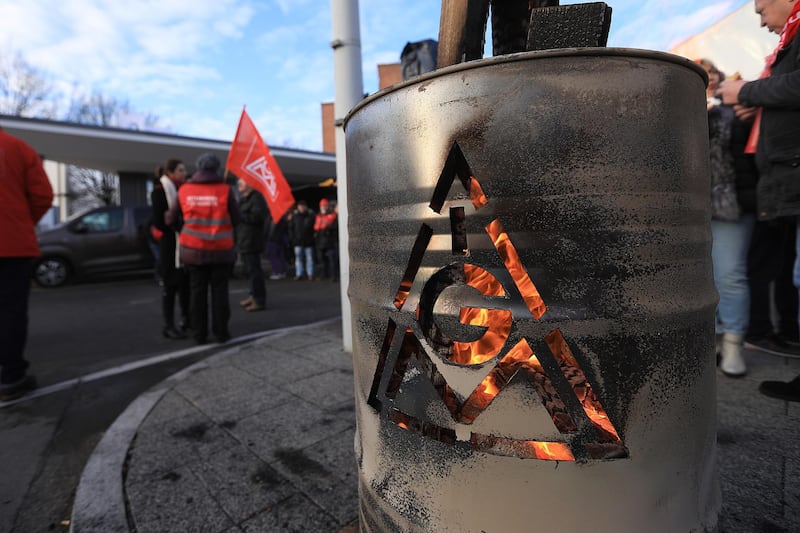Germany's powerful metalworking union IG Metall agreed with bosses on a new right to switch temporarily to a 28-hour week.
Could the example from Europe's largest economy - often a trailblazer in labour relations - be echoed by other countries?
As well as a pay rise, metalworkers in prosperous south-western state Baden-Wuerttemberg agreed with bosses that they can in future switch temporarily to shorter hours.
The agreement came after workers at industrial majors from Siemens to Daimler and BMW escalated a labour dispute with a series of day-long strikes across Germany last week.
Part-time working is not a new concept in German labour law, but it's the first time employers will not have a veto even if they fear it will disrupt business, according to AFP.
Employees would switch from the present 35-hour limit to 28 hours per week for up to two years before a return to full-time work.
Until now, those switching temporarily to shorter hours have enjoyed no guarantee they could reclaim their full-time post.
Their salary will fall in line with the shorter number of hours, but some beneficiaries like young parents, those caring for elderly relatives or people doing shift work, will be able to take more paid holidays.
Baden-Wuerttemberg's deal is likely to be extended to the rest of Germany, as the state is often used as a test case by employers and unions.
Germany is basking in a period of high growth, despite the fact that German industrial production slipped in December after strong momentum throughout the year helped Europe’s largest economy expand at the fastest pace since 2011. according to Bloomberg.
Factory output declined 0.6 per cent from November, when it increased a revised 3.1 per cent, the Economy Ministry said on Wednesday. The reading, which is typically volatile, compares with estimates for a 0.7 per cent drop in a Bloomberg survey.
Bolstered by strong domestic demand and surging trade worldwide, manufacturing has been driving Germany’s economic boom. The upturn is set to continue in coming months after orders rose 3.8 per cent in December
The country is also enjoying historic low unemployment at 5.4 per cent in January and a shortage of skilled labour, meaning workers could bring maximalist demands to talks with employers, AFP said.
But the German deal "is not transplantable to France" where unemployment is close to double its neighbour's rate despite accelerating growth, said Pierre Gattaz, head of French employers' association Medef.
With unemployment at 8.7 per cent across the eurozone - and almost 18 per cent among under-25s - the same pressure on wages does not exist elsewhere, say analysts.
___________________
Read more:
Siemens gains from rebounding global economy
German ‘debt clock’ reverses for first time in 22 years
___________________
"Germany is the only one of the big countries where total slack in the labour market has fallen well below the pre-crisis levels of 2007-08," ABN Amro economist Aline Schulling pointed out.
"Germany can afford pay rises," acknowledged European Trade Union Confederation deputy general secretary Peter Scherrer.
But the deal "encourages workers and trade unions to organise for a fairer deal in all EU countries", he continued.
"This agreement should inspire pay rises and better working time conditions not only across Germany, but in companies across Europe," Mr Scherrer insisted.
IG Metall boasts almost 2.3 million members, making it Europe's largest trade union.
It negotiates the employment rules for as many as 3.9 million in sectors ranging from engineering to textiles manufacturing to car production.
In Germany, the deals it strikes with bosses usually set the tone for labour relations in other parts of the economy, especially public-sector employees.
The union has long broken new ground in Europe, striking in 1982 for a 35-hour work week for the first time using the slogan "More time to live, love and laugh".
It took until 1995 to wring a 35-hour deal out of bosses, but Germans were still five years ahead of France's adoption of a shorter week.
IG Metall has also adapted its demands to the changing work/life balance of the digital economy, clinching a deal with Volkswagen in 2011 to ban email outside office hours.






